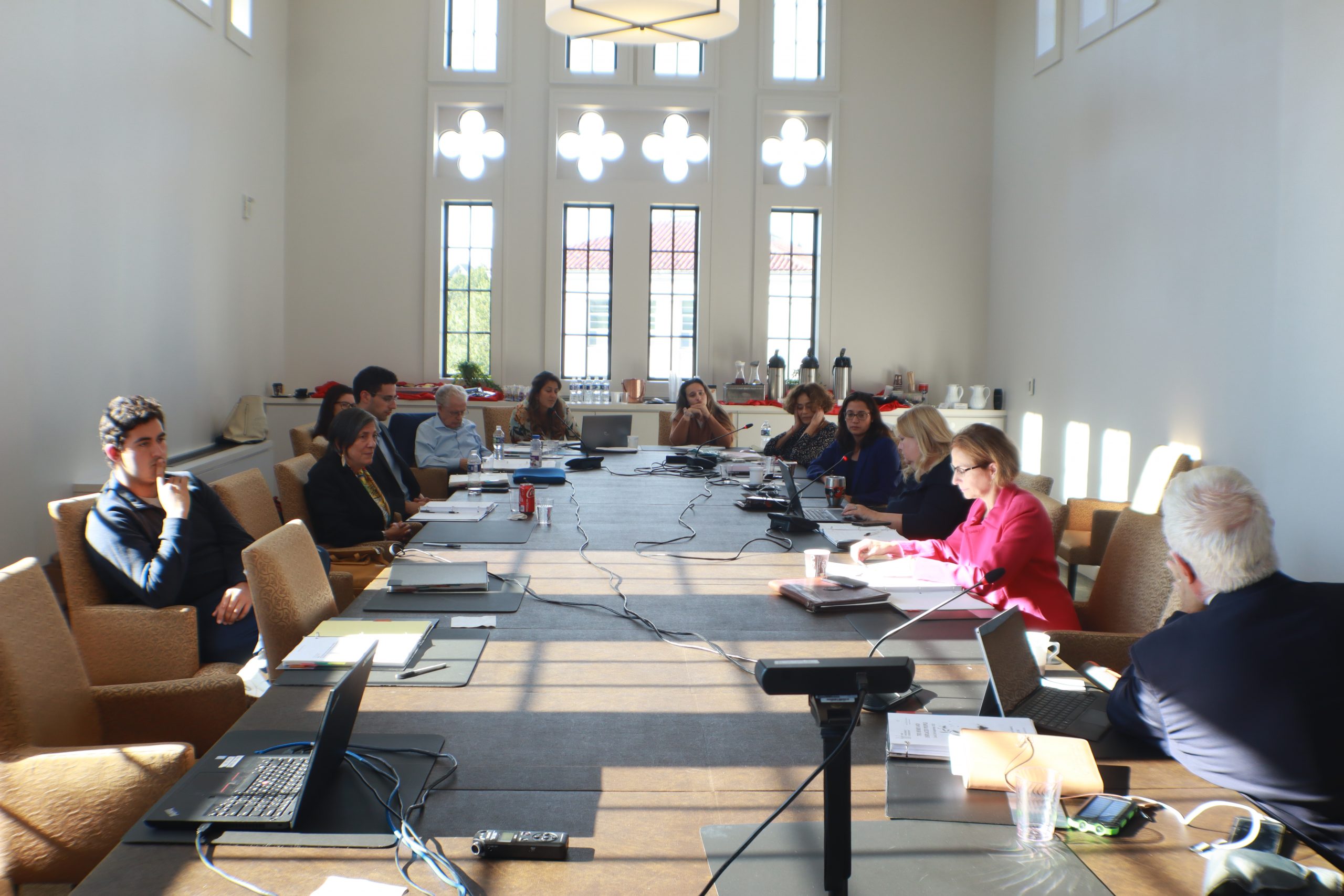It is time to stop thinking of migrant populations as “problems to be solved” by covering basic needs. This assertion was among the numerous takeaways generated by the “Home and Displaced People” experts meeting, held on September 22-23 at the Catholic University of America (CUA) in Washington, D.C.
Scholars and practitioners hailing from fields as varied as psychology, media and communications, social entrepreneurship, law, politics, public policy, and international relations – all engaged in migrant issues – came together to apply their expertise through the lens of homes as irreplaceable human needs.
Academic Leader Sophia Aguirre framed the issue by citing the home as a fundamental source of stability and the resilience that displaced people require to deal with transition. In his keynote address, “Care Is Work, Work Is Care,” Monsignor Robert J. Vitillo, Secretary General of the International Catholic Migration Commission (ICMG), stressed the intrinsic dignity of all migrants and the importance of treating them as more than simply “pieces on the chessboard of humanity.” Sharing some of the moving testimonies of those he has worked with during his long engagement with displaced people, he urged all involved to listen to their individual voices – to the stories of human beings prepared to make sacrifices to give their families better lives.
Introducing the first session under the rubric “Home as Integral Part of Displaced People Interventions and Policy Design,” London School of Economics (LSE) media and communications professor Myria Georgiou addressed the gathering by remote connection. Her presentation, “Making a Digital Home? Homeliness at Times of Digital Co-Presences and Absences,” challenged the static physical notion of homes, arguing that we all live increasingly borderless lives facilitated by technology. She also addressed the influence of negative media messaging regarding migrants as an obstacle to their integration.
The next presentation, “Building Home in Immigrant Integration and Inclusion Policies and Initiatives,” contended that strong local community support and interpersonal connections are key to successful immigrant integration and inclusion. Co-authors Kelly Ryan, Coordinator for the Inter-Governmental Consultations on Migration Asylum and Refugees (IGC) in Geneva, and U.S. Citizenship and Immigration Services (USCIS) Senior Advisor Heather Salfrank Joseph, challenged communities and institutions to build a shared sense of social benefit – a “we” culture rather than “them and us” narrative. They noted, “Full civic participation in American life is known to be key to successful integration.”
The Second Session’s presentations addressed “The Transition from a Stable to a Disruptive Home Experience for Displaced People.” Princeton’s Office of Population Research Senior Researcher Magaly Sánchez led with her paper “Venezuelan International Migration and how a Welcoming Colombian Migration Policy Fostered Integration into Society.” She gave a detailed account of the successful reception and integration of Colombian migrants in Venezuela. She noted the importance of policies that are based on generosity without denying the challenges to generosity by receiving communities already under duress.
Robert Destro, Professor of Law at CUA’s Columbus School of Law, followed with his paper, “The Concept of ‘Home’ in Human Rights Discourse with Special Reference to the Needs of Displaced People.” Like Sánchez, Destro raised the importance of considering migration not only from the migrants’ point of view but also from the receivers’ point of view. He focused on the crucial role of ‘subsidiarity’ – allowing the “bottom-up” work of host communities to be supported, but not controlled, by the “top-down” mechanisms of the larger state.
The final session, “Assimilation and Integration of Migrants and Displaced People,” opened with Christine Mahoney (Professor of Public Policy and Politics at the Frank Batten School of Leadership and Public Policy and Director of Social Entrepreneurship at the University of Virginia) expanding on work done with her husband, John Kluge, founder of the Refugee Investment Network. Her paper, “Investing for Inclusion: How Refugee Lens Investing Can Facilitate the Inclusion of the Forcibly Displaced into Local Host Communities,” argued for a new strategy in which concerned global citizens might directly improve the lives of the displaced by micro microfinance- and impact-investing-funds. Migrants, she asserted, are entrepreneurial, and retain their desire to run the businesses and create the livelihoods of their former homes, despite their many losses. Impact capital, she argued, will improve lives and “show host countries that migrants can create capital for host countries.” Eventually, she says, such evidence will “change the narrative” for the benefit of all.
Finally, Sandra Barrueco, Assistant Professor of Psychology and Fellow of the Institute for Policy Research & Catholic Studies at CUA, and John Paul Ryan, Research Clinical Coordinator at the Geneva Foundation and CUA PhD candidate, presented their work entitled “Home Life and Familial Experiences of Migrant and Seasonal Farm Workers in the United States: Results from a Nationally Representative Study.” They focused on the special stressors of the lived experience of displaced people, noting that the psychological costs of living as a displaced person have not received the investigation they deserve, calling for a “two-way responsibility network” between hosts and hosted.
